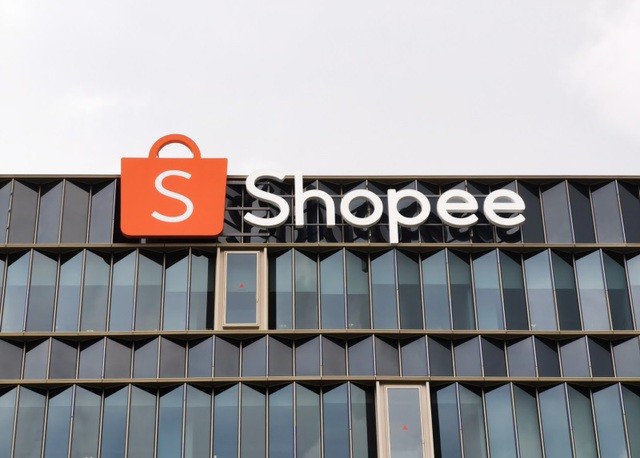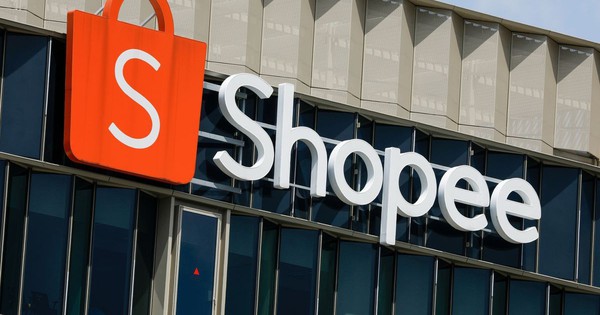Can Sea Remain the Darling of the Stock Market?

Last week, when Sea – the parent company of Shopee – announced its Q4 and full-year business results for 2023, investors were pleased. The company recorded its first profitable year, despite Q4 still being in the red.
Sea’s stock on the New York Stock Exchange rose 17% in the four trading sessions following the announcement.
The positive response from investors was largely due to the guidance provided by the company’s leadership, particularly regarding the prospects for its e-commerce subsidiary, Shopee. This led many analysts to raise their target prices for Sea.
The company’s leadership expects Shopee’s revenue to continue growing and for the company to maintain its market share, despite fierce competition, in order to remain profitable.
Sachin Mittal, an analyst at DBS Bank, called this guidance “positive and surprising.”
However, this optimistic outlook has helped boost investor confidence and overlook other business results, especially those of Garena and SeaMoney, the group’s financial services and gaming businesses.
Garena’s full-year revenue, which has long been the cash flow source for the group, decreased by 44% compared to 2022. SeaMoney’s adjusted EBITDA also experienced its first decline since Q3 2021, as sales and marketing expenses for their fintech business doubled compared to the previous quarter.
Sea Group’s CEO and founder, Forrest Li, explained that the company is capitalizing on the seasonal increase in sales volume in Q4 to attract new SeaMoney users, which will lead to “better long-term profits.”
The Billion-Dollar Question
In recent years, e-commerce has become an increasingly significant part of Sea’s overall revenue. The proportion of its total revenue from this segment has increased from 38% in 2019 to 69% in 2023.
Although the e-commerce business is still operating at a loss, the question remains whether the growing contribution of Shopee to total revenue can eventually turn into equivalent or even surpass Garena’s profitability.
Techinasia poses the billion-dollar question: Can Shopee consistently achieve the “what if” scenario of continuous growth?
Sea lost $10 billion in market value last year after its Q2 2023 business results.
Investors are concerned about the possibility of Shopee returning to losses, especially with its plans to invest more in direct sales activities to compete with TikTok Shop, particularly in Indonesia. This comes after the e-commerce platform achieved three consecutive quarters of adjusted profits from Q4 2022 to Q2 2023.
However, Q3 and Q4 of 2023 saw Shopee return to reporting negative adjusted profits.
Sea’s CEO, Forrest Li, acknowledged the “intense competitive environment in Southeast Asia” but stated that Shopee has indeed witnessed “significant market share gains” in 2023.
Key to this is Shopee’s market-leading position, which provides the company with an “economies of scale” advantage that enables them to “generate better profits” and maintain good cost efficiency.
Li mentioned that Shopee has the “most competitive pricing platform in the market” and that this management focus will continue.
For example, Shopee will have “slightly better bargaining power” with sellers regarding their product pricing because they can sell higher quantities on Shopee compared to other platforms.
Li also highlighted the introduction of Shopee’s new “return-at-doorstep” service in February, which allows buyers to return products at any time during the shipping process.
Buyers will surely appreciate the lower prices and differentiated services. However, Shopee needs to be careful not to alienate sellers in this process. Some sellers have expressed concerns about the new refund policy, stating that they received returned products in poor condition.
While Shopee currently leads the market in Indonesia, the combination of TikTok Shop and Tokopedia may offer an appealing alternative for sellers. However, there are still questions regarding whether this entity will comply with Indonesia’s regulations for e-commerce transactions on social media platforms.
Shopee’s ability to offer immediate returns is made possible by its internal logistics service, Shopee Xpress, which was introduced in 2020.
Investing in logistics is a strategic move that many e-commerce giants are making. For example, Amazon and South Korea’s Coupang have heavily invested in their logistics networks.
Sea’s CEO, Forrest Li, shared the progress the company has made in developing its logistics network during the opening speech of the business results briefing. In Q4 2023 alone, Shopee opened five new sorting centers and 385 new first and last-mile delivery hubs across various Asian markets.
Li mentioned that the overall logistics cost per order on the platform in Asia decreased by 12% compared to the same period last year, with Shopee’s internal logistics cost per order decreasing by 20%. Delivery is also faster, with over half of the orders from buyers on Java, where the majority of Indonesia’s population resides, being delivered within two days.
However, the progress that Shopee Xpress has made also comes with its own challenges.
When an e-commerce platform has its own logistics arm but still relies on external providers, it tends to incentivize prioritizing internal services, something that Shopee needs to balance as it expands.
In fact, the Indonesian Competition Commission is currently investigating allegations that Shopee automatically directs users to use Shopee Xpress and other affiliated delivery companies.
No Stock Repurchases
With many technology companies listed in the US, including Grab, announcing stock buybacks as a way to return excess cash to shareholders, Sea’s investors may be wondering the same.
Sea announced that it ended the year with over $8 billion in cash, short-term investments, and relatively liquid securities such as bonds.
However, investors should not expect any stock buybacks at this time. When asked if they intend to allocate part of their reserves to repurchase stocks, Sea’s executive, Yanjun Wang, replied that the company believes they should be “cautious in maintaining an ample cash balance” to “seize future opportunities to maximize long-term shareholder profits.”
The market’s enthusiastic response to Sea’s results, compared to the silent response to Grab’s results, indicates that investors prioritize growth over capital recovery at this time. This is one of the reasons why the stock market reacted disappointingly to Grab’s Q4 results – the company’s projected 2024 revenue fell short of expectations.
Now, Sea must deliver on its promises. The market and investors are always changing and demanding. If the company fails to meet its set targets, it could trigger a sell-off and undermine all the achievements made thus far.
*This article was originally published on Business Today.

